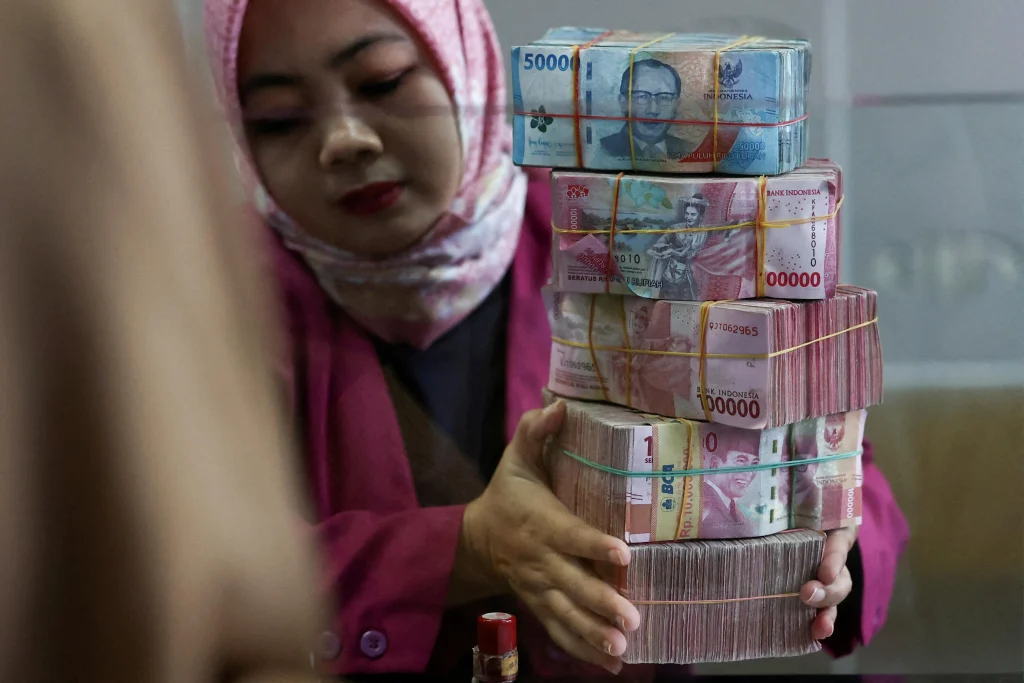Bank Indonesia has stepped up intervention this year and last month began intervening in the offshore non-deliverable forwards market
Published Thu, May 8, 2025 · 01:08 PM
[JAKARTA] Indonesia’s foreign-exchange reserves saw the biggest drop in nearly two years after the central bank ramped up market intervention to cushion the sliding rupiah last month.
The stockpile fell by US$4.6 billion to US$152.5 billion in April, Bank Indonesia (BI) said on Thursday (May 8). The decline, the biggest since May 2023, was due to the government’s external debt payments and the central bank’s rupiah stabilisation measures as the global market was roiled by the US announcement of so-called reciprocal tariffs.
The pressure for Bank Indonesia to intervene has eased recently, with the rupiah rebounding 2.8 per cent from a record low touched on Apr 9. The rupiah was steady at 16,543 against the US dollar while stocks slipped 0.1 per cent after the reserves data announcement. The 10-year government bond held its earlier gain.
The latest data, however, shows how costly the central bank’s efforts to anchor the rupiah could be at a time of global market jitters and investor concerns about Indonesia’s fiscal position. BI has stepped up intervention this year and last month began intervening in the offshore non-deliverable forwards market.
Reserves also fell even after the government began requiring many natural resources exporters to keep all of their US dollar-denominated earnings onshore for at least a year starting March 2025.
The rupiah slid to its weakest point ever in early April after US President Donald Trump slapped Indonesia with higher tariffs of 32 per cent, though the levy has been pared back to 10 per cent pending trade talks. The currency remains the worst performer among major Asian peers this year, having depreciated by about 2.6 per cent against the US dollar.
The central bank said on Wednesday that it sees global risks stemming from higher US tariffs and India-Pakistan tensions, and emphasised that it remains in the market to stabilise the rupiah. BLOOMBERG
Share with us your feedback on BT’s products and services


